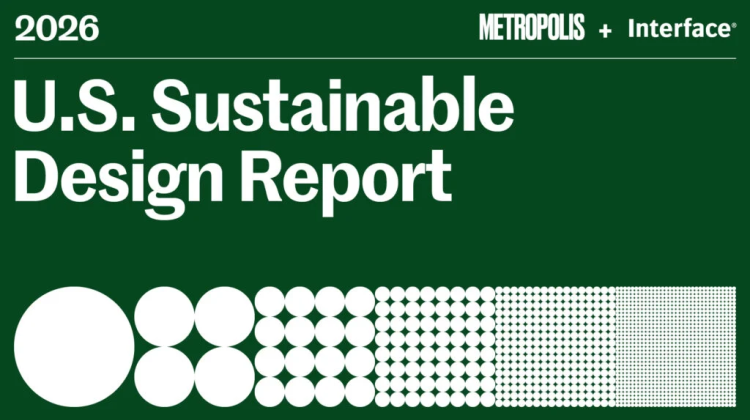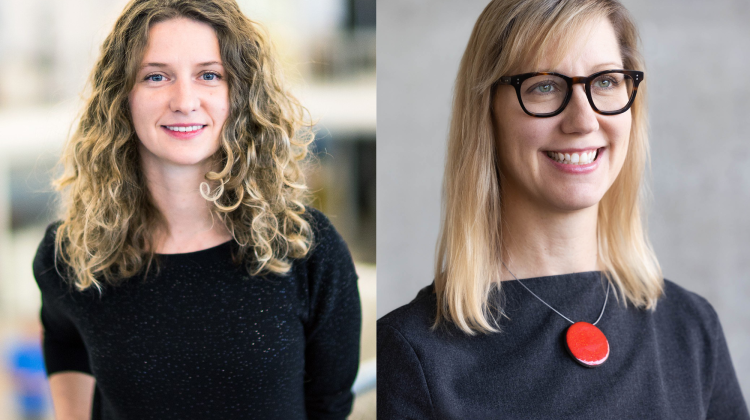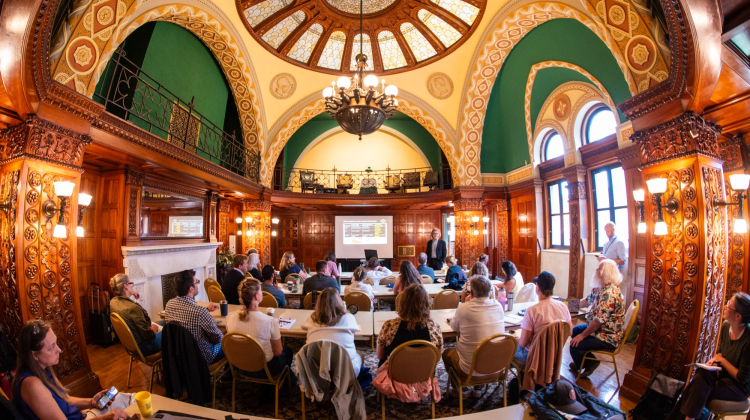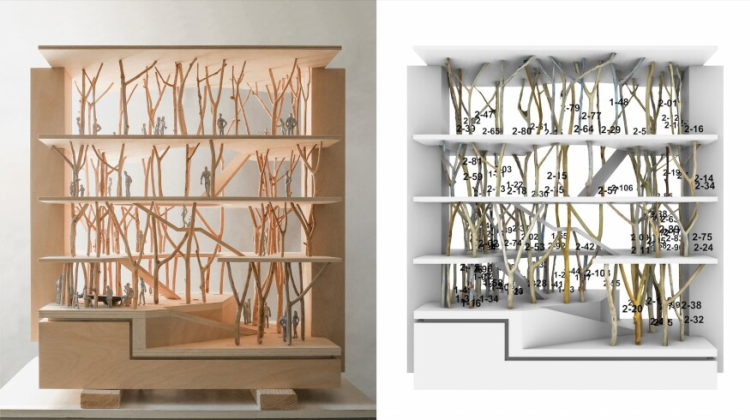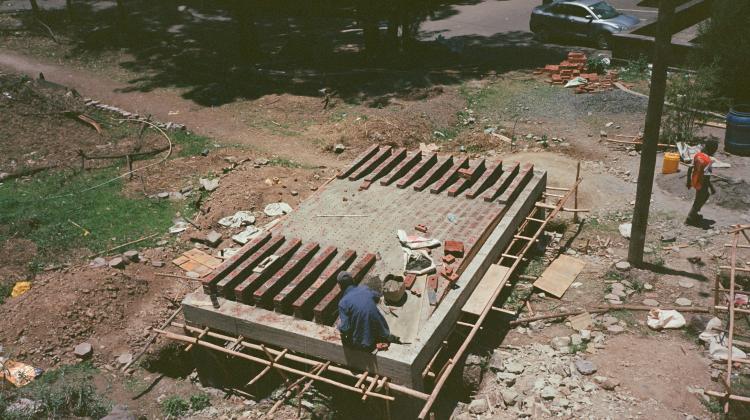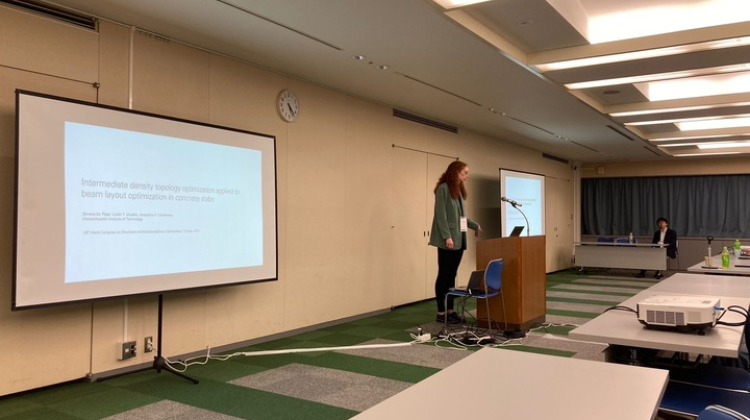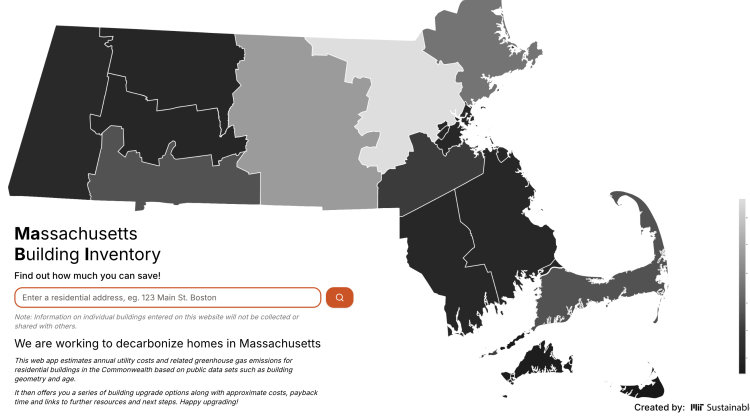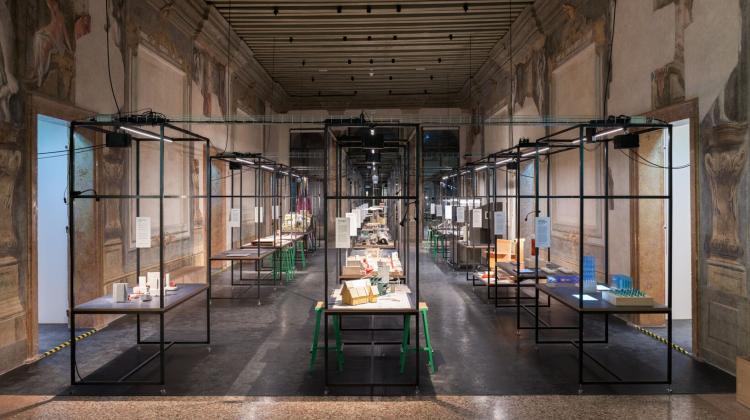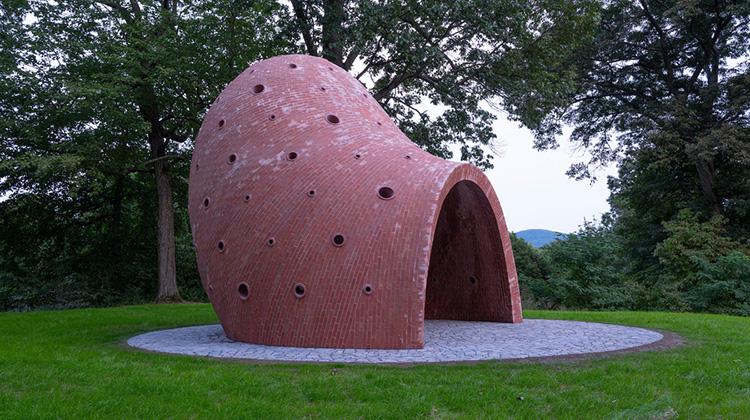Building Technology
Contact
Ryan Lee
Discipline Group Assistant
- Image
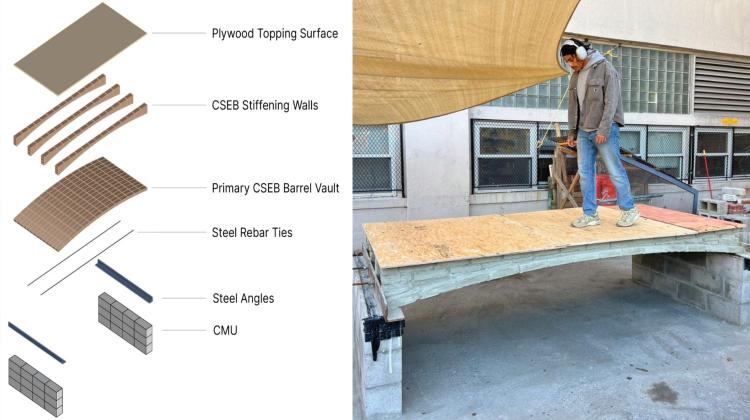
PhD student Nebyu Haile testing an unreinforced barrel-vaulted earthen floor system for low-cost, low-carbon multistory building design (Haile, 2024)
- Image
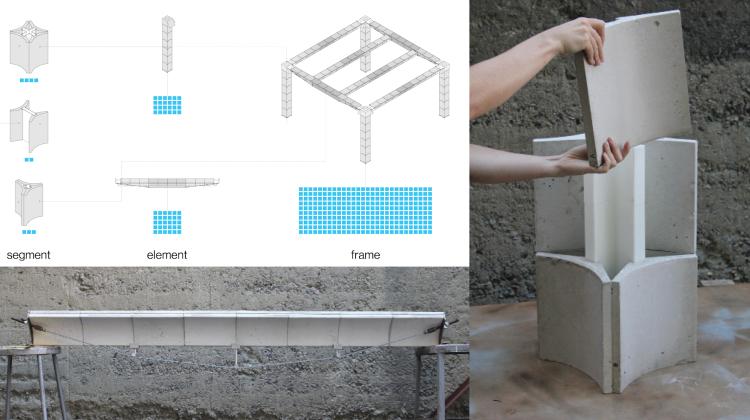
Pixelframe is a modular precast concrete system with dry joints and no steel reinforcement, enabling fully reusable, long-span, multi-story structures for a circular construction industry (Pixel Frame)
- Image
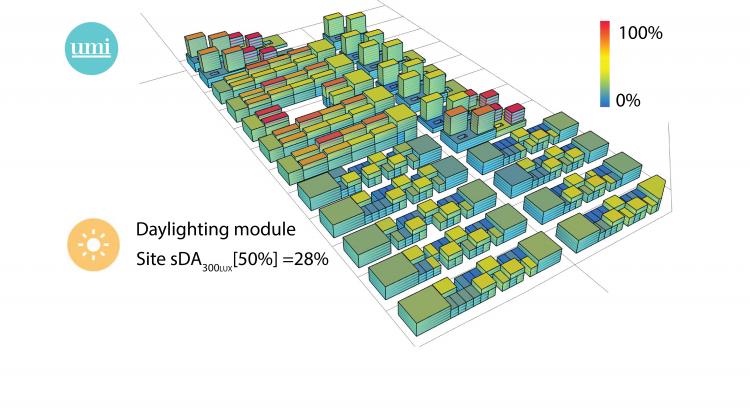
Urban Modeling Interface- Sustainable Design Lab.
- Image
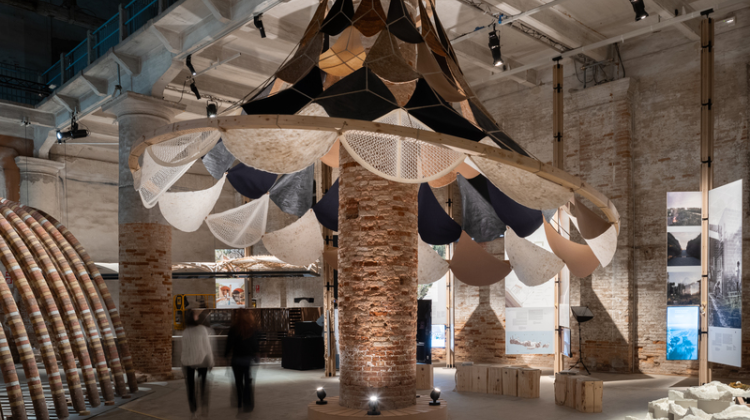
VAMO, an ultra-lightweight biodegradable canopy at the Venice Biennale, reimagines architecture through tension, compression, and reclaimed materials to challenge permanence and waste.
- Image

Introduction to Structural Design- taught by John Ochsendorf.
- Image
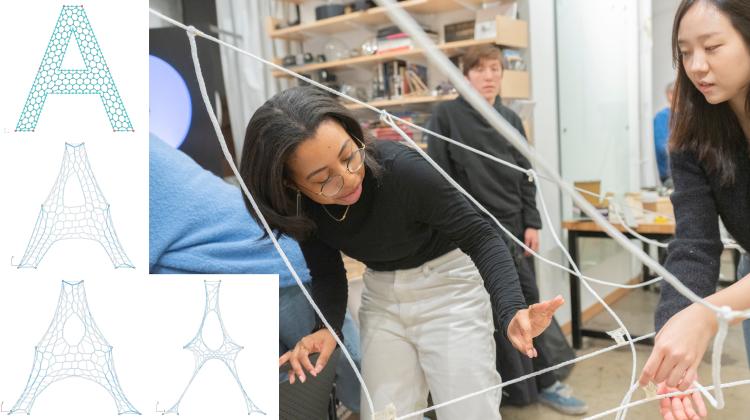
Student workshop demonstrating FDMremote, an interactive Grasshopper-based tool that uses gradient-based optimization and automatic differentiation to let non-specialists design and optimize tensile structures. (Burke et. al, 2023)
- Image
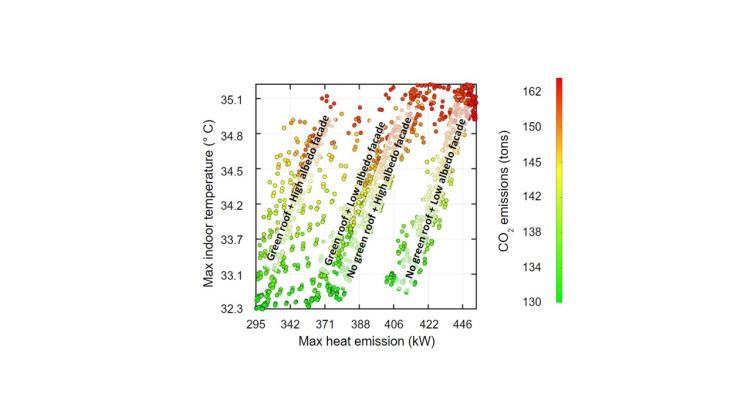
Co-Benefits of Heat Resilient Architecture. Livable Spaces Lab. Samuelson, H.W., Baniassadi, A. and Gonzalez, P.I., 2020. Beyond energy savings: Investigating the co-benefits of heat resilient architecture. Energy, 204, p.117886
- Image
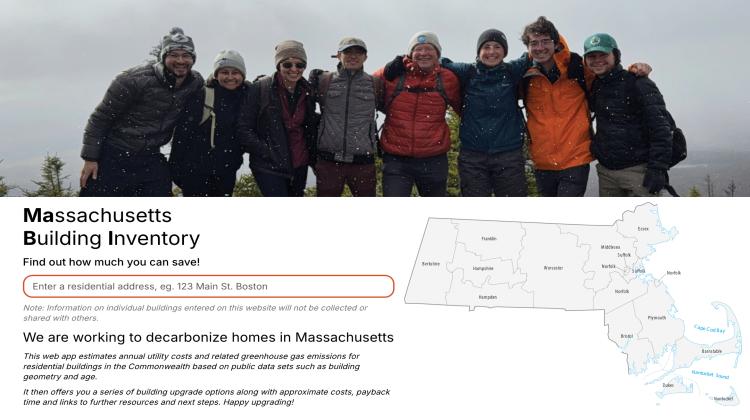
The Massachusetts Building Inventory (MABi) tool, developed by the Sustainable Design Lab, is a web app that estimates annual utility costs and emissions for Massachusetts homes and suggests upgrade options with costs, payback times, and resources
- Image
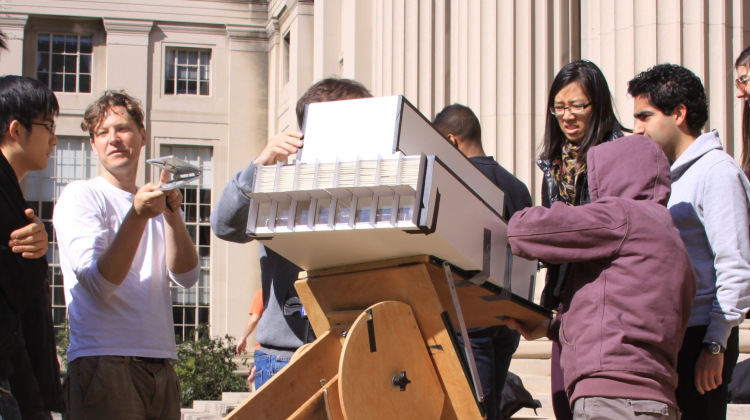
Professor Christoph Reinhart of the Sustainable Design Lab teaches climate-responsive design in 4.401/4.464, equipping architects, engineers, and planners to create healthier, more resource-efficient buildings.
- Image
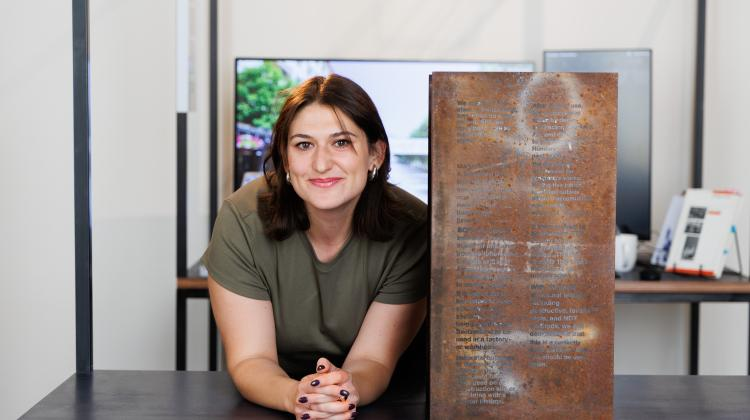
PhD student Juliana Berglund-Brown and Professor John Ochsendorf's STEELE installation at the 2025 Venice Biennale highlights the overlooked value of structural steel, showing how reuse can cut carbon, save costs, and transform “scrap” into a resource for future construction.
- Image
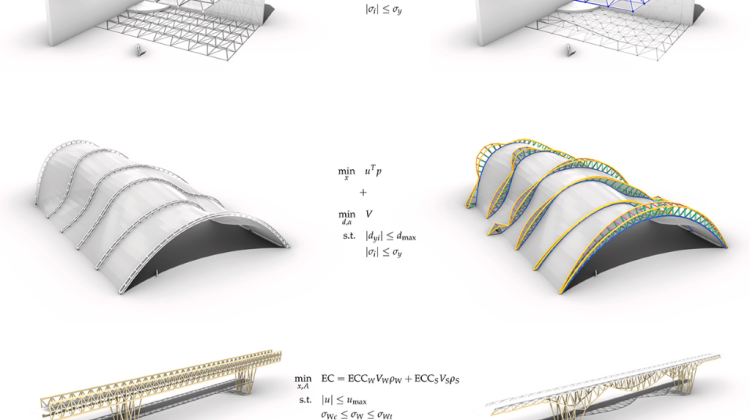
A Digital Structures Group-developed differentiable structural analysis framework uses automatic differentiation to enable fast, scalable, and flexible gradient-based optimization for high-performance structural design (Lee, Huang, and Mueller, 2025)
- Image
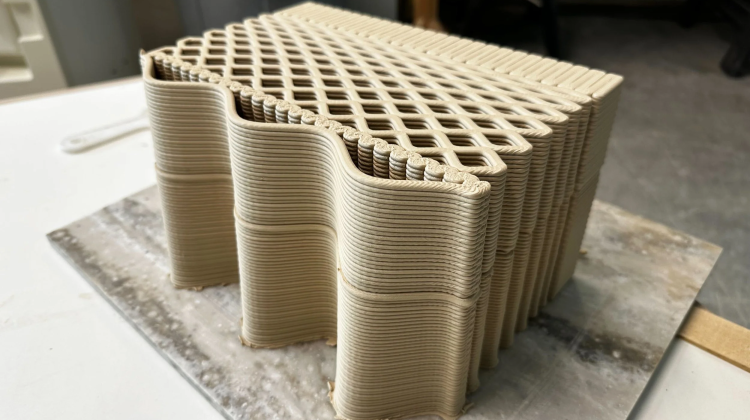
Forma, a design and technology studio founded by Building Technology alumni, develop multi-cellular clay bricks use precision-optimized geometries to balance insulation and heat storage, reducing material use while enhancing thermal performance and resilience across diverse climates.
- Image
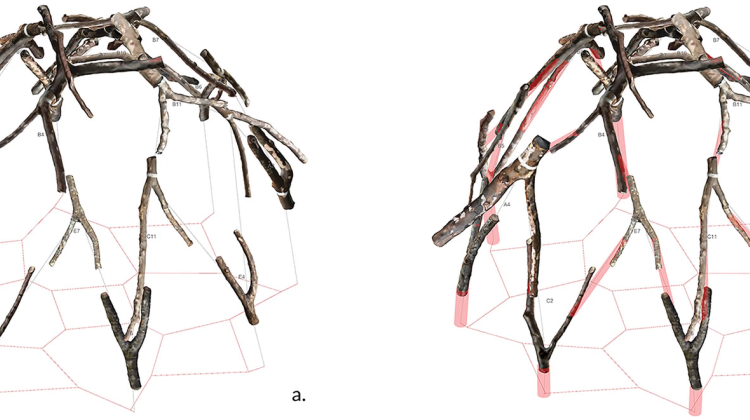
'Wild Wood Gridshells: Mixed-Reality Construction of Nonstandard Wood' by Tim Cousin, Latifa Alkhayat, Natalie Pearl, Christopher B. Dewart & Caitlin Mueller. Image: Technology | Architecture + Design (TAD). Read more here.
Overview
The Building Technology (BT) Program at MIT is a group of students, faculty, and staff working on design concepts and technologies to create buildings that contribute to a more humane and sustainably built environment. Our work ranges from fundamental discovery to full scale application. Students are challenged to address topics of clear and important relevance to the future of the built environment through creative and analytically rigorous approaches.
Students entering into the program are able to engage with active and ongoing research projects while pursuing their own intellectual and career agendas. Areas of study are highly interdisciplinary and address topics at diverse scales, from individual building components to broader urban energy and material flows. Each student works on research directly with a Building Technology faculty member. Research frequently involves collaborations with other departments in the sciences, social sciences, and humanities. The Building Technology department also engages with industry and public agencies to bring cutting-edge research into practice through pilot projects and policy.
Areas of Research
Sustainable Design Strategies
- Low-energy and passive building energy strategies
- Indoor environmental/air quality and views
- Embodied carbon
- Material reuse, circularity
- Human comfort analysis
- Human health and well-being
- Policy development for building technologies
Advanced Materials and Construction Systems
- Innovative materials and assemblies
- Emerging and nontraditional building materials
- Integrated architectural design strategies
- Structural design and optimization
- Advanced manufacturing and digital fabrication for construction
Computational Design, Simulation, and Analysis
- Performance driven computational design approaches
- AI and machine learning methods
- Building and urban energy modeling and simulation
- Multi-physics modeling and optimization
- Innovative analysis and modeling of historic structures
Urban and Environmental Systems Analysis
- Urban environmental sensing, urban heat island effect, and urban metabolism
- Resource accounting through material flow analysis and life cycle assessment
Faculty Advising
Based on area of interest, each of our students is matched with a Building Technology faculty advisor upon admission. The advisor provides guidance on the initial plan of study, including the selection of major and minor fields, and on each term's choice of subjects. The advisor supports the student's progress and assists the student in the selection of a dissertation committee.
Each admitted applicant begins research under the supervision of a faculty member while also starting coursework. Many graduate research projects will be a portion of a sponsored research initiative. Students may be co-advised by faculty from within and outside the Building Technology group. Many BT faculty members have joint appointments in departments including Civil and Environmental Engineering, the Schwartzman College of Computing, and Architecture.
Faculty and Staff
Caitlin Mueller
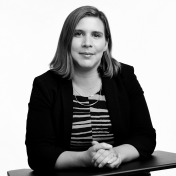 Director of Building Technology Program, Associate Professor
Director of Building Technology Program, Associate ProfessorChristoph Reinhart
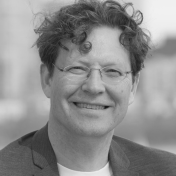 Terri and Alan Spoon Professor of Architecture and Climate
Terri and Alan Spoon Professor of Architecture and ClimateJohn Ochsendorf
 Class of 1942 Professor
Class of 1942 ProfessorJohn E. Fernández
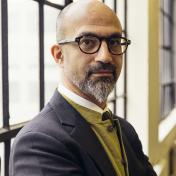 Professor
ProfessorLeon Glicksman
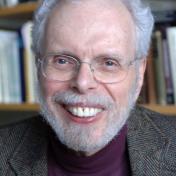 Professor Post Tenure
Professor Post TenureLes Norford
 Professor Post Tenure
Professor Post TenureHolly Samuelson
Associate Professor, Fairchild Career Development ChairRyan Lee
Discipline Group Assistant
News + Events
Graduate Programs
Graduate programs in Building Technology offer students the opportunity to explore critical topics for the future of the built environment and resources through close collaboration with interdepartmental research teams.
Applicants of diverse educational backgrounds and interests are considered. Students will be accommodated in the Building Technology student lab area and will have the opportunity to work with and share their interests with BT students in other degree programs. They may also be advised and take part in BT research groups while pursuing degrees in other departments, including Civil and Environmental Engineering, Urban Studies and Planning, the Schwartzman College of Computing, and more.
Students in all degree programs attend the Building Technology Seminar in their first semester. The course gives a broad overview of research directions in Building Technology through readings, discussions, design and analysis projects, and student presentations. The course teaches fundamental research methodology and supports the development of students’ individual research directions.
See Graduate Programs for specific degree requirements.
Graduate Degree Programs
PhD
PhD in Building Technology
The doctoral program drives in-depth research across Building Technology's diverse areas of study. The program is open to qualified students with a suitable background in technology and a degree in engineering, science, or architecture. Students construct an individualized course of study in close collaboration with faculty and in the context of ongoing research directions. Coursework includes subjects in engineering disciplines along with subjects that deal with the application of these topics to buildings. The goal of the program is to train students to be innovators and leaders in the built environment, through future positions in universities, research laboratories, or cutting-edge practice.
PhD Residency Requirements:
- Residency at MIT: Minimum of 2 years, but more typically 3-5 years
- Coursework includes 4.481 Building Technology Seminar and subjects relevant to the student's thesis research topic
Candidates are expected to be registered at MIT until the PhD dissertation is completed. Only under special circumstances will students be allowed to carry out any of their research while not in residence at MIT.
SMBT
Master of Science in Building Technology
The Master of Science in Building Technology (SMBT) is a research-oriented program designed for graduate students interested in the development and application of advanced technology in buildings. The program accepts students with undergraduate degrees in a variety of engineering disciplines, in the physical sciences, or in architecture, with a suitable background in technology. All share both a keen interest in buildings and a thorough education in mathematics, physics, and other technical subjects.
Students will be incorporated into active and ongoing research projects while pursuing their own intellectual and career agendas. Students complete coursework in basic engineering disciplines as well as in other diverse subjects with applications in the built environment. Each student admitted to the program will take part in a research project to fulfill the SMBT thesis requirement, the scope of which is developed in close collaboration with faculty.
SMBT Structure and Requirements:
- 2 year residency
- Coursework includes 4.481 Building Technology Seminar and subjects relevant to the student's thesis research topic
- Thesis based on research project advised by one or more Building Technology faculty member
- Accepts students with technical backgrounds
SMArchS BT
The Master of Science in Architecture Studies (SMArchS) is a two-year program of advanced study founded on research and inquiry in architecture as a discipline and as a practice. The program is intended both for students who already have a professional degree in architecture and those interested in advanced non-professional graduate study.
SMArchS in Building Technology
The Master of Science in Architecture Studies (SMArchS) is a two-year program of advanced study founded on research and inquiry in architecture as a discipline and as a practice. The structured program is intended both for students who already have a professional degree in architecture and those interested in advanced non-professional graduate study.
SMArchS in Building Technology is a program in which students work alongside students from other departments, including Civil and Environmental Engineering, Mechanical Engineering, Material Science and Engineering, Urban Studies and Planning and others. Students entering into SMArchS in Building Technology will be incorporated into active and ongoing research projects.
SMArchS Structure and Requirements:
- 2 year residency
- Coursework is a structured, interdisciplinary program including 4.481 Building Technology Seminar and courses in Architecture, Civil and Environmental Engineering, Mechanical Engineering, Material Science and Engineering, Urban Studies and Planning, and more
- Thesis based on research project advised by one or more Building Technology faculty member
- Accepts students with technical or architecture backgrounds
Funding
Building Technology students are supported by a diverse combination of departmental funds, MIT fellowships, external fellowships, teaching assistantships, and through projects sponsored by industry and government. Student support may be split between departments and research projects. Externally sponsored projects give students exposure to important issues in industry and practice. During the admissions process, the faculty admissions committee carefully reviews all relevant funding opportunities (e.g. from internal fellowship and faculty research grants) available for prospective students. The Building Technology faculty aspire to fully fund all graduate students in the program, including tuition and stipend at levels set by MIT.
For more information on funding opportunities, please see the resources below.
- MIT Architecture Grants, Awards, and Prizes
- MIT Tuition Stipend Rates
- OGE Fellowships
- Doctoral Research Opportunity in Building Technology and Advanced Urbanism (LCAU)
Theses and Dissertations by Thesis Advisor
Reinhart
Ochsendorf
Fernandez
Norford
Glicksman
Publications
The majority of academic publications in the Building Technology program take the form of papers published in peer reviewed journals or conference proceedings. Articles are typically co-authored between faculty, students, and postdocs. To see all publications produced by members of the Building Technology program see this Google scholar link.
Building Technology Open House 2025
Playlist of Faculty & Student Talks
Building Technology Alumni
2020-2025
Adriana Ramirez Cuebas, SMBT 2025
Ali Irani, PhD BT 2025
Eduardo (Edu) Gascon Alvarez, PhD BT 2025
Keith Janghyun Lee, PhD BT 2025
Kiley Feickert, PhD BT 2025
Amanda Rose Kirkeby, SMBT 2024
Demi Fang, PhD BT 2024
Inge Donovan, SMBT 2024
Jenna Schnitzler, SMBT 2024
Lauren Christine Moore, SMBT 2024
Ramon Elias Weber, PhD BT 2024
Svenja Herb, SMBT 2024
Zoe De Simone, SMArchS BT 2024
Zoe Emmanuelle Le Hong, SMBT 2024
Leilah Sory, SMBT 2023
Mohamed (Moh) Ismail, PhD BT 2023
Yiwei (Lucy) Lyu, SMArchS BT 2023
Alpha Yacob Arsano, PhD BT 2022
Johnathan Kongoletos, PhD BT 2022
Yijiang Huang, PhD BT 2022
Yu Qian Ang, PhD BT 2022
Yuan Cai, SMBT 2022
Zhujing (Stella) Zhang, SMBT 2022
Elizabeth Lyn Li Young, SMBT 2021
Jingyi Liu, SMBT 2021
Norhan Magdy Mohamed Bayomi, PhD BT 2021
Wen Xi (Bryan) Ong, SMBT 2021
Yesufu O'ladipo, SMArchS BT 2021
Charu Sharma, SMArchS BT 2020
Irmak Ifakat Turan, PhD BT 2020
Mariana Liebman-Peláez, SMBT 2020
Nicole Tang Liwen, SMBT 2020
Paul Mayencourt, PhD BT 2020
Pierre Emmanuel Cuvilliers, PhD BT 2020
Renaud Alexis Danhaive, PhD BT 2020
Ruoyu (Royale) Lan, SMBT 2020
2014-2019
Hellen Awino, SMArchS BT 2019
Jiamin Sun, SMArchS BT 2019
Justin Lueker, SMBT 2019
Nathan Collin Brown, PhD BT 2019
Shreshth Nagpal, PhD BT 2019
Andrew Brose, SMArchS BT 2018
Jiachen Mao, SMBT 2018
Karen Marie Noiva (Welling), PhD BT 2018
Bradley Tran, SMBT 2017
Elizabeth Lister McCormick, SMBT 2017
Noor Khalil Khouri, SMBT 2017
David Henry Blum, PhD BT 2016
James William Plunkett, SMBT 2016
Mariana Ballina, BSA BT 2016
Qin (Eve) Zhang, SMBT 2016
Qinzi Luo, SMBT 2016
Richard Hull Aeck, SMBT 2016
Aiko Nakano, SMBT 2015
Aurimas M. Bukauskas, BSA BT 2015
Brianna Coston, BSA BT 2015
Cody McCullough Rose, SMBT 2015
David Nicholas Costanza, SMBT 2015
Jeffrey Geisinger, SMBT 2015
Kathryn A. Gertz, BSA BT 2015
Madeline Gradillas, SMBT 2015
Po-An (Leo) Su, SMBT 2015
Tarek Rakha, PhD BT 2015
Timur Dogan, PhD BT 2015
Caitlin Tobin Mueller, PhD BT 2014
John Alstan Jakubiec, PhD BT 2014
Kaitlin Ryan Goldstein, SMBT 2014
Kristian M. Fennessy, BSA BT 2014
Mali Esther Wagner, BSA BT 2014
2008-2013
Adam Halbert Neugebauer, SMBT 2013
Alexander Freimark Keller, SMBT 2013
Devon D. Sparks, BSA BT 2013
Haofan Cheng, SMBT 2013
Jose Israel Ramos, SMBT 2013
Leonidia M. Garbis, BSA BT 2013
Michael Street, SMBT 2013
Tea Zakula, PhD BT 2013
Amanda Laurel Webb, SMBT 2012
Bruno Bueno Unzeta, PhD BT 2012
Carrie Ann Brown, PhD BT 2012
David James Quinn, PhD BT 2012
Elaine E. Shapiro, SMBT 2012
Emily Jing Wei Whiting, PhD BT 2012
Hannah Rebekah Durschlag, SMBT 2012
Jennifer Lee Furstenau Zessin, PhD BT 2012
Noel Robert Davis, SMBT 2012
Phan Hue Truong, SMBT 2012
Timothy Graham Cooke, SMBT 2012
Zahraa Nazim Saiyed, SMBT 2012
Alexander David Weigert Jordan, BSAD BT 2011
Andrea Love, SMArchS BT 2011
Jaime Michelle Lee Gagne, PhD BT 2011
Siobhan Francois Rockcastle, SMArchS BT 2011
Sophia Lisbeth Hsu, SMBT 2011
Artessa Domingo Saldivar-Sali, SMBT 2010
Cristen B. Chinea, BSAD BT 2010
Nicholas Gayeski, PhD BT 2010
Sharon J. Gochenour, BSAD BT 2010
Lori E. Ferriss, BSAD BT 2009
Philippe Camille Vincent Block, PhD BT 2009
Shutsu K. Chai, SMBT 2009
Elizabeth Katcoff, BSAD BT 2008
Jessica N. Sundberg, BSAD BT 2008
Megan Louise Reese-Anderson, SMBT 2008
Terianne C. Hall, BSAD BT 2008
2002-2007
Fallon Michele Samuels, SMBT 2007
Matthew D. Roitstein, BSAD BT 2007
Megan K. Arp, BSAD BT 2007
Roselin Emily Osser, SMBT 2007
Gary R. Atkins, BSAD BT 2006
Joseph Dahmen, SMBT 2006
Wanda W. Lau, SMBT 2006
Alexandar (Sasho) H. Popov, BSAD BT 2005
Man-Shi Low, SMBT 2005
Molly E. McGuire, SMBT 2005
Randolph Scott Punter, BSAD BT 2005
William J. Elliot, BSAD BT 2005
Yvette J. Fitch, BSAD BT 2005
Adán Rodriquez, BSAD BT 2004
Austin Parsons, SMBT 2004
Christopher M. Carbone, SMBT 2003
Felix A. Rivera, BSAD BT 2003
Stacy Figueredo, BSAD BT 2003
Erik Lee Olsen, SMBT 2002
Yang Gao, SMBT 2002
1996-2001
Acharawan Chutarat, PhD BT 2001
Byron John Stigge, SMBT 2001
Jeffrey M. Huang, SMBT 2001
Jinsong Zhang, BSAD BT 2001
Nathan Brian Dean, SMBT 2001
Nobukazu Kobayashi, SMBT 2001
Daniel M. Arons, SMBT 2000
Kevin Franklin Settlemyre, SMBT 2000
Paul Rafiuly, SMBT 2000
Christoph Ospelt, SMBT 1999
Guilherme Carvalho Carrilho Da Graca, SMBT 1999
Nico Kienzl, SMBT 1999
Shiping (George) Hu, SMBT 1999
Henry Carlton Spindler, SMBT 1998
Henry Harvey, SMBT 1997
Joseph Arons Charlson, SMBT 1997
Kurt Levens, SMBT 1997
Rochelle Morie Nagata, SMBT 1997
Sinyan Kimberly Law, SMBT 1997
Christopher B. Ackerman, SMBT 1996
Kristie Lee Bosko, SMBT 1996
Makoto Taneda, SMBT 1996
Maribel Vazquez, SMBT 1996
Mark De Simone, SMBT 1996
1991-1995
Galip Mehmet Okutan, SMBT 1995
Gregory P. Sullivan, SMBT 1995
Jimmy C. Su, SMBT 1995
Katherine J. Holden, SMBT 1995
Roger O. Hill, SMBT 1995
Cyane Bemiss Dandridge, SMBT 1994
Eric Michael Oliver, SMBT 1994
Michael McCormick, SMBT 1994
Shuh-Hwa Sih, SMBT 1994
Takashi Nakamura, SMBT 1994
Steven Lee Duckworth, PhD BT 1993
Frank C. Revi, SMBT 1992
John David Moreno, SMBT 1991
Jordan Lewis Dentz, SMBT 1991




